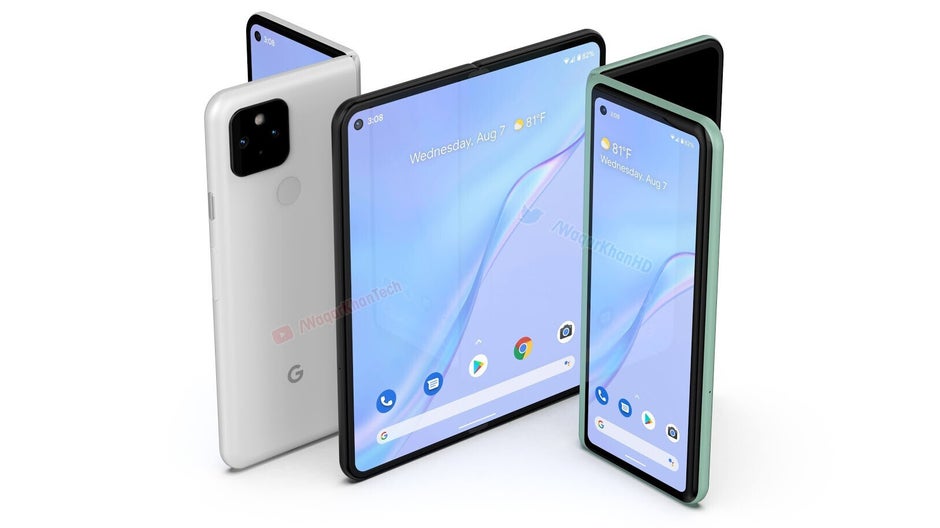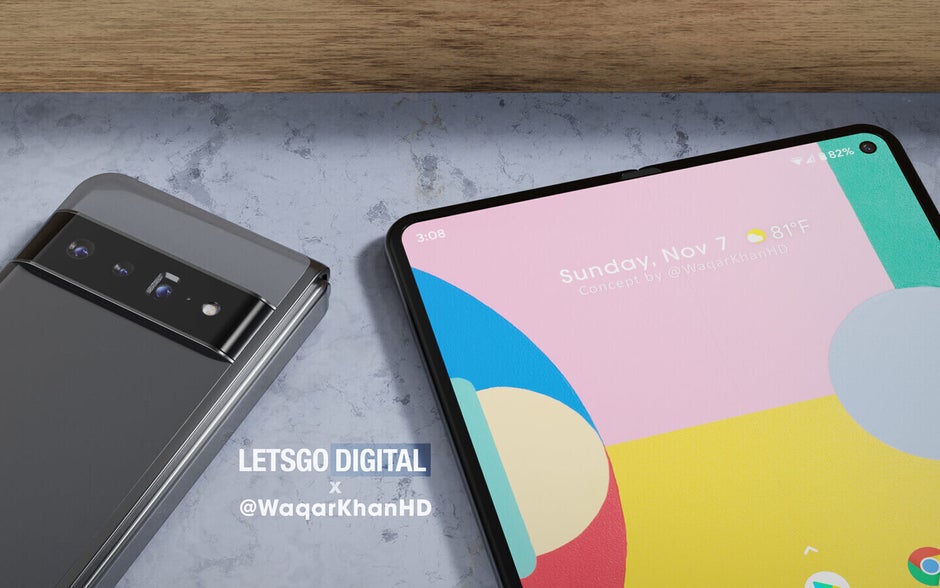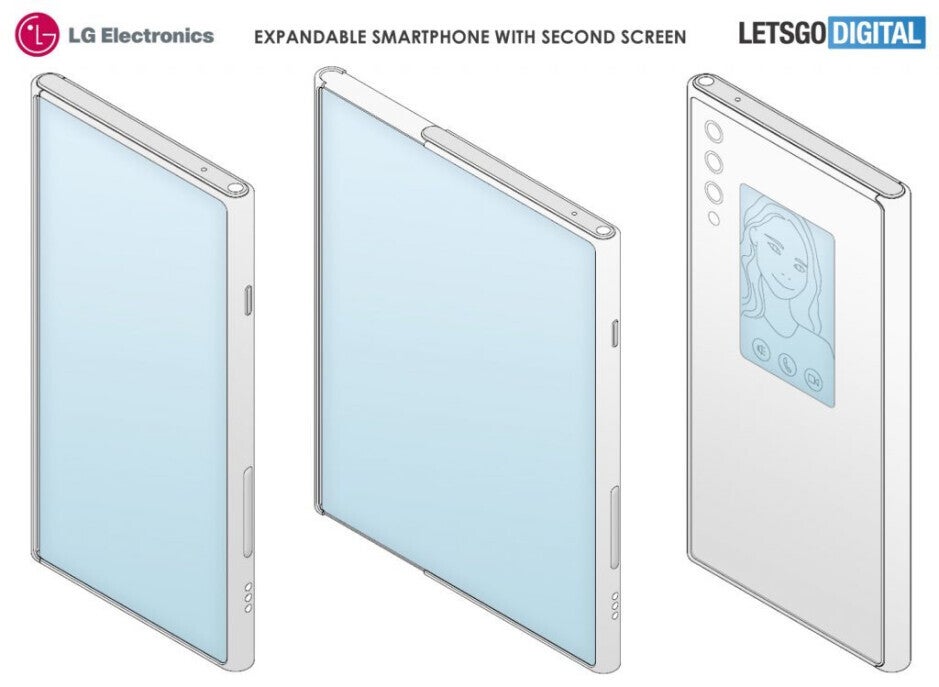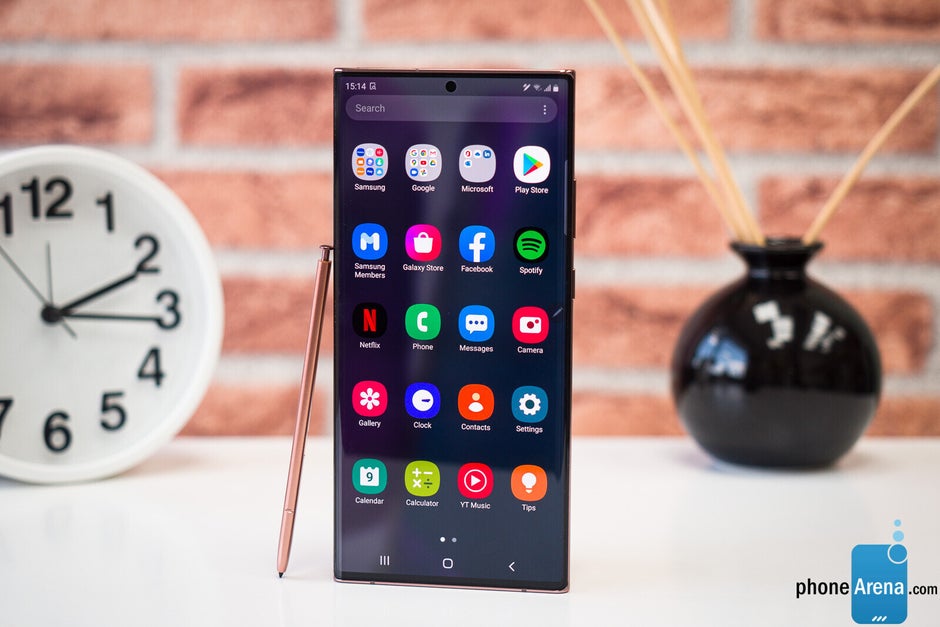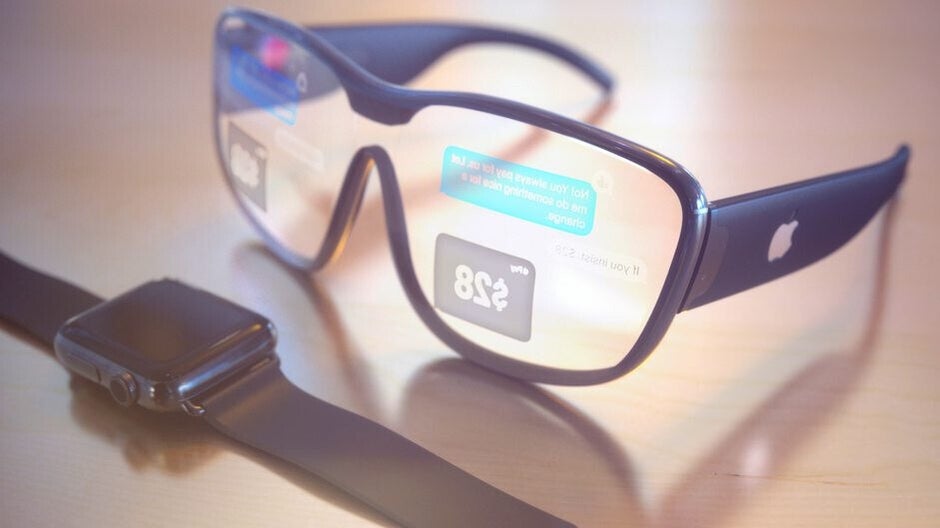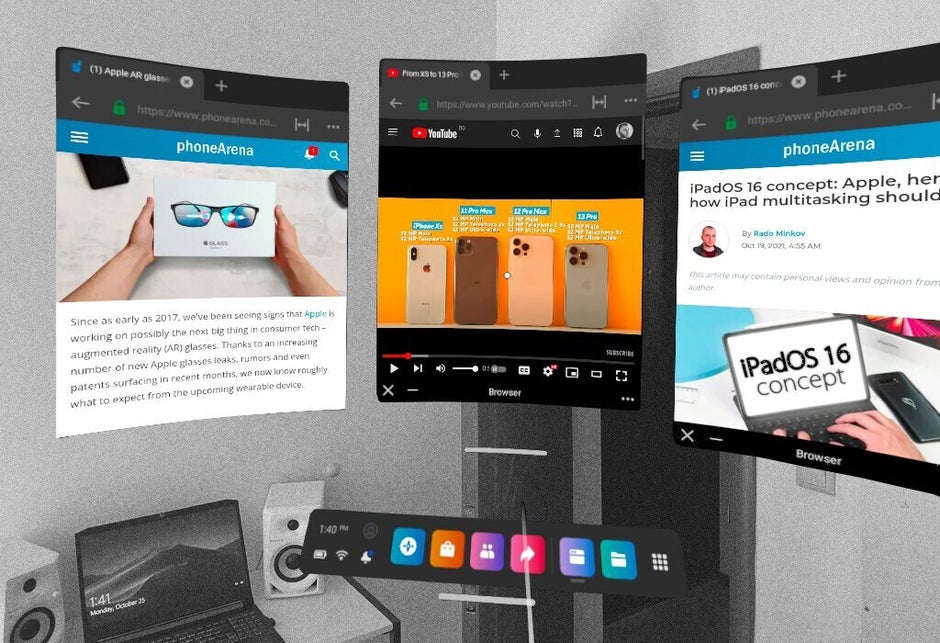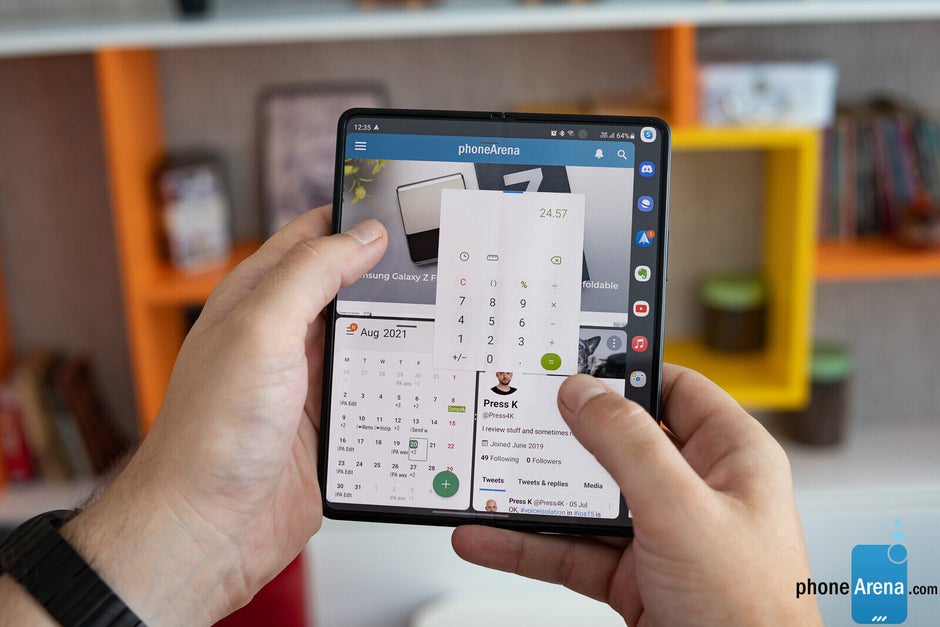RIP: 2021’s coolest phones that didn’t make it! (And the ones that did)
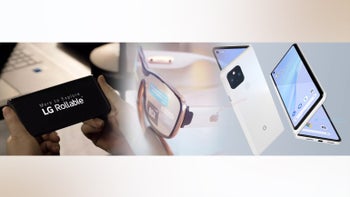
We’re nearing the end of 2021, and what a year it’s been. Following 2020, any year has to be better, but 2021 was actually pretty fantastic, at least in terms of what went down in the smartphone world.
And we’ll get to all the cool, unique smartphones we saw this year, but first, let’s take a look back at the ones we expected to see but didn’t make it in 2021, starting with the most recent folding phone to not see the light of day.
Google Pixel Fold
The Pixel Fold feels like something Google canceled (or hopefully just delayed) at the very last moment, as just over the course of this year we received so many, many rumors about it, including what specs it might pack, how it might look… It felt like it was just around the corner.And then in the middle of last month, Ross Young, the CEO of Display Supply Chain Consultants and reputable leakster said that Google has canceled its orders for parts for the Pixel Fold. This was a confirmation that even if the Pixel Fold wasn’t technically canceled, it definitely wasn’t going to be making its entrance into the young but competitive folding phone market this year.
Supposedly Google didn’t think the Pixel Fold had enough to offer, in order to reasonably compete with Samsung’s folding phone champion – the Galaxy Z Fold 3. While the Pixel Fold was rumored to sport a 120Hz 7.7-inch folding display and be powered by Google’s own new Tensor chip, the Galaxy Z Fold 3 is indeed a highly refined product at this point, hard to compete with, especially now, considering its S Pen stylus support and the huge number of Samsung software features it packs.
For example – Samsung DeX, which is a desktop interface for when the phone is connected to an external monitor, something akin to Windows. Google doesn’t currently have a competing feature to offer on its own theoretical folding phone. Google’s Pixel Fold would likely not have offered stylus support either, so indeed – that’s a hard sell next to the Galaxy Z Fold 3. But still, another foldable phone on the market would’ve been good for consumers, as the more there are – the more competitive their prices can get. Because as we all know foldables are still quite pricey.
But hey, foldable phones aren’t everything we expected in 2021 in terms of cool new designs. Rollable phones didn’t make it at all this year. And one of those was also seemingly just about ready for release…
LG Rollable
If there’s one majorly sad thing that happened this year in the world of smartphones, it’s that LG quit making them. Just a few months after it released one of the most unique phones we’ve ever seen – the dual-screen T-shaped LG Wing, at the end of May, 2021, LG Electronics ended smartphone production forever.
And we’ll get to that in a bit, but first, let’s talk about the LG Rollable itself, as well as rollable phones in general. Back in 2020 I personally believed that 2021 will be the year of the rollable phones because of how many, many patents from various phone makers came out, proving that they were working on such phones.
So it’s pretty unfortunate that we actually didn’t see a single one come out, not even the LG Rollable itself, which was so close. And we indeed have many reasons to believe that the LG Rollable was pretty far in production before it was cancelled.In January LG teased the LG Rollable in a 10 second clip (shown above), and later in April a photo of a production version of the LG Rollable appeared online. The phone was also proven to have received an NFC certification, plus a Bluetooth 5.2 certification.
It was to feature a seemingly normal form factor, but with a twist – its flexible screen would roll out, turning the LG Rollable into something akin to a tablet when needed. When the user was done with their tablet needs, they could again make the screen roll back into the chassis, making the phone pocketable again.
It was a cool concept that would’ve rivaled foldable phones like the Galaxy Z Fold 3, and maybe even ushered a rollable trend for other manufacturers to follow too this year. But alas, as mentioned, somewhere near the release of the LG Rollable, the company behind it decided to quit the phone market.
And although this is pretty unfortunate for LG fans, who voted the LG V60 ThinQ as their favorite LG phone, LG as a company is still doing just fine. Despite it’s now out of the consumer phone business, LG continues to be a highly valuable producer of various smartphone parts like cameras and displays, for other manufacturers.
For example a few months back it was reported that none other than LG may be producing next year’s iPhone 14 displays, and perhaps even the OLED displays for future iPads.
So LG is just fine. And hey, we’ll always have the fond memories. Speaking of which, if you loved LG for its daring and unique smartphones, check out our LG Wing review and our LG G8X and Dual Screen review for a nice trip down memory lane. And for the V60 ThinQ’s many fans, we also have a review for that one, and we rated it 9/10 no less. We see why you loved it!
Samsung Galaxy Note 21
Although not exactly on par with the rest on this list in terms of design innovation, the Galaxy Note 21 was to be a continuation of a unique phone series nonetheless. A big, flagship phone with a built-in stylus that resides inside the phone itself, and as such, that stylus is always available.
For better or worse, the Galaxy Note 21 we expected didn’t come out this year, to follow last year’s Galaxy Note 20. By many accounts, Galaxy Note production has ended, just this month in fact.
And while I’m sure some of us are sad that this series didn’t get a 2021 addition, Samsung didn’t leave its S Pen stylus fans without options. Both the new Galaxy Z Fold 3 and the Galaxy S21 Ultra have S Pen support.
We could argue that the Z Fold 3 is Samsung’s productivity king now, even though next year’s Galaxy S22 Ultra is the phone that many will consider to be the true Note 20 successor.
Apple AR Glasses
Augmented reality (AR) is a trend we can realistically expect to replace smartphones eventually. Sure, AR glasses aren’t exactly a phone, but they do belong on this list regardless of the technicalities.
Apple has been working on AR glasses for years now, and the company’s CEO Tim Cook himself has shared his excitement for AR many, many times. And if Tim Cook’s word isn’t enough for you, top reliable analyst Ming-Chi Kuo also said that the iPhone has roughly 10 more years before it’s replaced by AR completely. But of course, that means AR is actually coming much sooner, to first compliment your smartphone, and only later, perhaps really 10 years from now when the technology is ready, to fully replace it.
In any case, since we’ve been seeing Apple patents on AR and VR headsets surface for years now, back in 2020 it did seem like this would be the year the trillion-dollar Cupertino giant would finally announce a new headset or glasses. Leakers such as Jon Prosser expected Apple’s AR glasses to be revealed this March, or June at WWDC (Apple Worldwide Developers Conference), and when that didn’t happen, we expectedly got rumors suggesting later and later supposed announcement dates. But 2021 is pretty much over now, and so is the chance of any potential surprise announcements from Apple.
As it stands, the most plausible speculation is from September and comes from Digitimes, who suggested that Apple’s first AR headset has completed its second phase of prototype testing and will be released during the second half of 2022. So once again, we can only hope that mainstream AR is coming soon.
But what are AR glasses anyways? We do have a full page about Apple’s AR glasses that you may find interesting, but in short, augmented reality glasses are likely to eventually take everything you love about your smartphone and mix it with the real world – the world that you’re seeing right now.
Examples are the best way to explain this – imagine you’re just relaxing in bed but you also want to watch a YouTube video or maybe check out PhoneArena.com. What would you normally do? Take out your phone, which is a physical rectangle that you must hold and look at, right?
But with AR glasses you’ll just be able to put those on, not pick up any phone, not stare at any physical object, perhaps use hand gestures or voice commands to pull up a video, and it will pop up in a floating window in front of you. With embedded speakers into the glasses’ frames, you’ll hear it, and as the image of the video will be projected on the glasses’ lenses or your retinas – again, you’ll just see it as if it’s floating in the air.
Most of that is not new technology, by the way. A few months back I wrote an article explaining why I believe AR is the future of smartphones, and for it, I made this image to illustrate how AR already works and looks on the Oculus Quest 2 headset:
The problem is, current headsets like that one are huge and bulky, not really meant for AR either, so you get this grainy monochrome view of your surroundings, but with dedicated AR glasses like those Apple is about to release, this won’t be an issue.
In any case, 2022 could be the year AR starts going mainstream. Not only thanks to Apple, but as far as we know, even Verizon is working on AR glasses now.
Shout-out to the unique smartphones that actually did get released in 2021
Now that we paid our respects to the interesting mobile tech that will never make it, or got delayed, let’s check out the amazing, innovative smartphones that actually did come out this year! Starting with a favorite of mine – arguably the most exciting smartphone of 2021…
Samsung Galaxy Z Fold 3
This big, refined foldable smartphone from Samsung comes with a better-than-ever display and even S Pen stylus support now, following steady generational improvements since the first Galaxy Fold from 2019.
When you need it to be a phone, it’s a 6.2-inch phone. A pretty heavy and thick, candy-bar shaped phone, but pocketable nonetheless. And when you need it to be a tablet, just unfold it and there it is – a beautiful 7.6-inch tablet. Both its outer display and its flexible inner display are gorgeous, smooth 120Hz AMOLED ones, and the phone’s stereo speakers are a literal blast, so for things like watching videos, this is a superb phablet to get. But also, for productivity.
Aside from the aforementioned stylus support, plus all of the dedicated stylus gestures and apps it packs, the Z Fold 3 features some great multitasking capabilities, for example the ability to split the screen across three apps and even to enable a fixed taskbar.
If that’s not enough, connect this versatile phone to an external display and you get Samsung DeX – a desktop PC-like interface for even better productivity! This phone is a beast, and at least in my opinion – the best smartphone released this year.
Samsung Galaxy Z Flip 3
This passing year Samsung released what is likely the most fashionable foldable phone right now – the Galaxy Z Flip 3. Its main gimmick? It’s a highly pocketable modern flip phone, that looks like a normal smartphone when unfolded, but fold it in half and you get a much smaller form-factor that fits even in your small jeans pocket!
Oppo Find N
Just a few days go Oppo released its first folding smartphone, which is actually smaller than the Galaxy Z Fold 3, and for a first – quite stylish! Way to go Oppo! Sadly it’s currently only been released in China, but we can hope to be able to give it a try soon. Who knows, perhaps Oppo’s sister company OnePlus will re-release it worldwide?
Microsoft Surface Duo 2
Last year Microsoft re-entered the Smartphone market after the unfortunate demise of its previous endeavor – Windows Phone, six years ago.
But this time, the tech giant went with Android and a very exciting and unique, thin, dual-screen form factor. Indeed, the first Microsoft Surface Duo was pretty, but riddled with software bugs, and users were pretty unhappy with its camera quality. So this year Microsoft seemingly improved on all of those gripes with the Duo 2 – it has better cameras and even stylus support.
Always happy to see a unique phone form factor, and even more happy to see Microsoft not giving up on the Duo after last year, but seemingly planning to improve it year over year like Samsung does with its Galaxy Z Fold.
Huawei Mate X2
Although unfortunately Huawei isn’t exactly enjoying a worldwide reach right now, its phones are still selling in many regions, including Europe.
And perhaps its most exciting phone this year was the Mate X2. It may look like a lesser Galaxy Z Fold 3 to the naked eye, without an “invisible selfie camera”, Google Play store, Samsung’s great software features and S Pen support, but it’s still great to see at least one other brand than Samsung keeping a consistent focus on foldables.
Here’s to an exciting new year full of smartphone innovation!
There we have them – some of the most unique smartphones that we expected this year but didn’t make it, along with some that did!
2020 was a difficult year for all, plus there’s a chip shortage going on, so it’s no huge surprise that we saw such delays and cancellations in 2021, but here’s hoping 2022 is better.
Better for both us – the individual consumers with our own struggles and needs – and the smartphone brands that we love, with the roadblocks they’ve been facing, from shipment and manufacturing delays to financial losses forcing them to quit the market altogether.
We’re all fighting our own fights and we’re all sharing a common passion for mobile technology – so let us be even more kind to each other in 2022. Here’s to a happy new year full of innovation!
For all the latest Technology News Click Here
For the latest news and updates, follow us on Google News.


